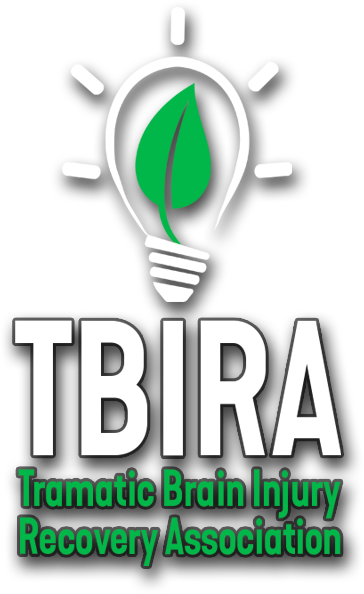TBI Constitutional Issues
Looking for an Attorney registered with the U.S. Supreme Court Bar Association
U.S. Supreme Court Americans with Disabilities Act 1990 cases.
Please review and contact Arlene Atherton at aarleneratherton@gmail.com
The cases are LANDMARK CASES – As Significant as the NFL Players’ Concussion Injury for Injury Case:
Federal Question
Americans with Disabilities Act 1990, U.S. Code § 12101
Discrimination & Prejudice on a protected Disability (TBI) Traumatic Brain Injury
ADA 1990 is about ACCESS. In this case its ACCESS to TBI Medical/Rehabilitation Care.
There are 2.9 million TBI survivors in Emergency Rooms a year. There are 35 million TBI survivors living in the USA including concussions. Many [1]who are falsely arrested by police and sent to mental institutions.
There are TWO important precedents to these U.S. Supreme Court cases
The First is the NFL Concussion Injury Litigation:
NATIONAL FOOTBALL LEAGUE PLAYERS CONCUSSION, 821 F. 3d 410 – Court of Appeals, 3rd Circuit (2016)
It settled with a 1 billion dollars to Football Players, who had concussions. The case cited a concussion as a Traumatic Brain Injury and neurological disorders. The Settlement Agreement included medical care. The approved Medical care: Neuropsychologists and Neurology-based treatments. The Settlement Agreement did not offer Psychiatrists or Mental Health care with psychotropic drugs.
The second is the Olmstead Act of 1999:
Olmstead v L.C., 527 U.S. 581 (1999), is a United States Supreme Court case regarding the discrimination against people with “intellectual disabilities.”
The Olmstead Act says that mentally ill people can live independently, and not be institutionalized. The Olmstead Act says that mentally ill people can live independently, and not be institutionalized.
A Traumatic Brain Injury is not the SAME as a “mental illness” or low IQ.
A TBI is not a chemical imbalance. It is a ripping, tearing, and shearing of brain tissue. It is recoverable with neuroplasticity. It takes 5-15 years or longer. TBI symptoms are similar to the DMS V diagnosis of mental illness, but those symptoms are used as MISDIAGNOSIS, which is Medical Malpractice.
Traumatic Brain Injury (TBI) is tissue damage. Through Neuroplasticity, the brain can grow a NEW neural network and map around the injured area of the brain. TBI is the only recoverable Neurological Injury in medicine. This means the symptomology of the Traumatic Brain Injury patient must be monitored in the Traumatic Brain Injury setting.
The DMS-V is based on patient behavior, and the treatment is pharmaceuticals using the science of chemical reactions in neurotransmitters. The pharmaceuticals are prescribed impacting the brain’s chemical reaction. The chemical bathing of the Brain made of sensitive neurological tissue interrupts the neuroplasticity of the brain to repair itself. The Brain is the only cellular tissue capable of self-repair.
Mental Health professionals prescribe a “chemical mask” using pharmaceuticals to control the behavior of a TBI patient. These behaviors are NATURAL due to the tissue and vessel damage from the Traumatic Brain Injury. Drug regimens should not be attempted to correct behavior. The suggested treatment is “cognitive therapy” or C.R.A.T.E.R therapy (developed in Palo Alto Veterans Administration Traumatic Brain Injury Treatment Clinic). These pharmaceuticals inhibit trained Traumatic Brain Injury Professionals from interacting and recording the progress of the TBI survivor.
Symptoms of Traumatic Brain Injury misdiagnosed as “Mental Illness”:
- Professionals often mistake the anger and emotional lability of the TBI survivor as “mood swings” under a “bipolar’ diagnosis.”
- Loss of “working memory” or “short-term memory” is labeled as a “Dementia” diagnosis, with an “early onset of Alzheimer’s Disease”.
- Professionals cite anger outbursts as “impulsive behavior”.
- The “Disordered Thoughts” of the speech by a TBI survivor is “tissue damage” affecting language centers by a TBI in Executive Function.
- Excessive sleep due to the brain regeneration required to heal the TBI is diagnosed as “Depressed”.
- “Grandiose Thinking” is diagnosed when the TBI survivor recites their past life and desires to achieve again.
The Traumatic Brain Injured Survivor exhibits the developmental capacity of emotional control attributed to “children” as measured by social knowledge found in the EXECUTIVE FUNCTION.
There are non-pharmaceutical treatments for these emotional concerns in group settings.
Pharmaceuticals are NOT the “Standard of Care,” for Traumatic Brain Injury and are medical malpractice.

The Americans with Disabilities Act of 1990 Protects:
Traumatic Brain Injured Survivors from being Institutionalized, as unable to care for themselves.
Take a look at the INTENT of CONGRESS:
Americans with Disabilities Act 1990
42 U.S.C. § 12101 (Section 2)
(a) Findings. – The Congress finds that-
(1) physical or mental disabilities in no way diminish a person’s right to fully participate in all aspects of society, yet many people with physical or mental disabilities have been precluded from doing so because of discrimination; others who have a record of a disability or are regarded as having a disability also have been subjected to discrimination;
(2) historically, society has tended to isolate and segregate individuals with disabilities, and, despite some improvements, such forms of discrimination against individuals with disabilities continue to be a serious and pervasive social problem;
(3) discrimination against individuals with disabilities persists in such critical areas as employment, housing, public accommodations, education, transportation, communication, recreation, institutionalization, health services, voting, and access to public services;
Please review and contact Arlene Atherton at aarleneratherton@gmail.com


